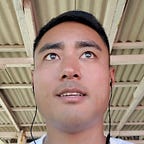Revisiting Old Wounds That Never Healed
America is edging towards a second Civil War. A series of tragic events across categories — health, social, economic — each one a tidal wave crashing down over our heads one after another. Those who already lived near or below the waterline are subject to drowning while those with money and power look down at the carnage, unaffected by the tide, from a safe bird’s eye view. And that’s the problem.
COVID-19 exposed the fragility in our healthcare systems and supply chains forcing our government to react by shutting down our economy. George Floyd was needlessly murdered exposing a completely different dimension of systemic failure — police have a license to kill. To patch all the problems, Congress passed multiple bills amounting in trillions exposing yet another dimension of systemic meltdown: the Federal Reserve believes it can solve all problems with unlimited debt.
There are three common themes in these tidal waves: government intervention, abuse of power, and misallocation of money.
Open Season for All Who Feel Oppressed
When I look at images of people in the streets I see the full spectrum of Americans with only one group missing — the 1%. What I see in the streets is a reaction to a single undeniably callous murder. What George Floyd truly is the straw that broke the camel’s back. The truth is this behavior has been ongoing since the origins of policing. In other words, it is a systemic failure as old as America herself.
As goes the saying in death, we all grieve differently. The rioting, looting, and protesting are a collective outpouring of emotion. Rage, fear, and helplessness represent emotions of the have-nots. In my humble opinion, many people are in the streets for any and all flavors of inequality and oppression (the two are different).
It is my interpretation that the citizens in the streets are expressing the sum of their fears of what America has become. I use the terms “lighter-skinned” and “darker-skinned” as a general concept reflecting the degree of freedom in the manner an individual is treated through everyday life. The “lighter-skinned” community feels the American Dream has become a fantasy out of reach — inequality. The “darker-skinned” community feels the American Dream has become a nightmare gone out of control — oppression.
The Minority Rules: 1% Versus the World
The 1% believes that those at the bottom aren’t pulling their weight and therefore “they’ve made their bed and now they have to sleep in it.” The most successful Americans avert their eyes from the reality that they themselves would perish miserably if they started at the bottom. The 1% likes to tout stories of generations past where hard work paved the way:
“I started in the mailroom and climbed the ladder for 20 years and today I am the CEO.” That is obviously not possible today.
I don’t mean to pick on Jeff Bezos, to the contrary I’ve read “The Everything Store” and think highly of his accomplishments. But put a young Bezos (pictured above) in South Central LA and his best-case outcome resembles something closer to Tekashi 6ix9ine (pictured below).
This is not to absolve the poor from shouldering their end of the social contract, but when only the privileged can afford to hire lawyers to write the rules and break them for decades on end creating incredible wealth discrepancies, welcome to peak 2020.
Implicit and Explicit Contracts
There are explicit corporate contracts and implicit social contracts that actively and passively guarantee inequality for all. The reason millions of citizens around the world of all denominations are spilling out into the streets, burning city blocks to the ground, and annexing neighborhoods is that the people innately understand, without a law degree, that their future prospects are bleak.
A good example: “Essential workers” is a euphemism for workers the government deems highly disposable. Essential workers are forced to risk their lives during an unknown health pandemic. Many live beneath or near the poverty line so they don’t have the luxury of not working. For their sacrifice, a round of applause in the news and shoutouts on social media but giving them a monetary bonus for putting their lives on the line is beyond reason for the 1% while our government doles out trillions to failing business owners. The way essential workers have been treated is reflective of America’s priorities.
Life is the Bottle Flip Challenge
When the rich flip a coin: heads they win, tails they win. When the poor flip a coin: heads they lose, tails they lose. The only win condition the poor have is when it manages to strike the perfect balance.
A perfect analogy for this is the bottle flip challenge. For the rich and powerful, they make it look easy, casual, smooth, confident. It looks a lot like this:
For the poor, I’m reminded of a different type of bottle flip challenge. When the poor experience success the reaction is often shock and amazement — it’s celebrated because it is an unexpected outcome against all odds!
Conclusions
When the powerful play against the powerless, the only chance the underdogs have outside of a miracle is to cheat. And the police are structured to catch poor people cheating and their accomplice in the media perpetuates the idea that the criminal is representative of the whole. The untold story is that many rich people habitually cheat, but the police are on their side and the only story the media tells is of the millions they minted.
Don’t believe me? You should listen to Robbing Hood, a researched mini-series by Peter McCormack on the outrageous “career” of our US Secretary of the Treasury Steve Mnuchin, who by the way is worth upwards of $400 million.
